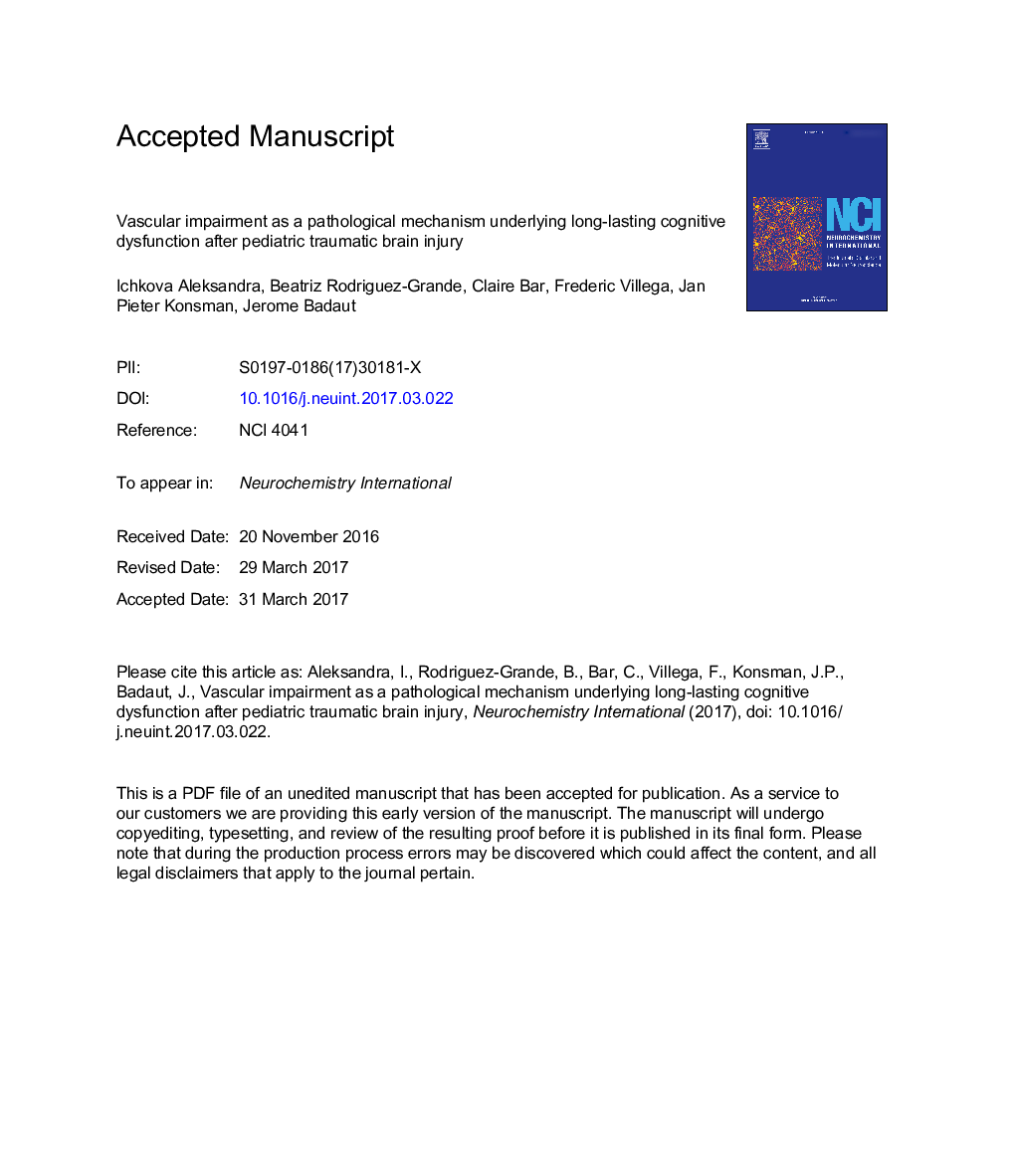| Article ID | Journal | Published Year | Pages | File Type |
|---|---|---|---|---|
| 8479026 | Neurochemistry International | 2017 | 47 Pages |
Abstract
Traumatic brain injury (TBI) is the leading cause of death and disability in children. Indeed, the acute mechanical injury often evolves to a chronic brain disorder with long-term cognitive, emotional and social dysfunction even in the case of mild TBI. Contrary to the commonly held idea that children show better recovery from injuries than adults, pediatric TBI patients actually have worse outcome than adults for the same injury severity. Acute trauma to the young brain likely interferes with the fine-tuned developmental processes and may give rise to long-lasting consequences on brain's function. This review will focus on cerebrovascular dysfunction as an important early event that may lead to long-term phenotypic changes in the brain after pediatric TBI. These, in turn may be associated with accelerated brain aging and cognitive dysfunction. Finally, since no effective treatments are currently available, understanding the unique pathophysiological mechanisms of pediatric TBI is crucial for the development of new therapeutic options.
Related Topics
Life Sciences
Biochemistry, Genetics and Molecular Biology
Cell Biology
Authors
Aleksandra Ichkova, Beatriz Rodriguez-Grande, Claire Bar, Frederic Villega, Jan Pieter Konsman, Jerome Badaut,
